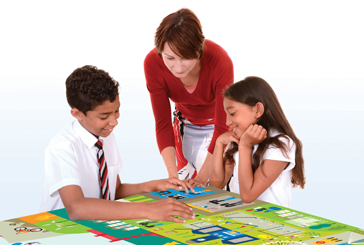 Here are some important things to remember about Cambridge English exams, and what you as a parent can do to help your child prepare.
Here are some important things to remember about Cambridge English exams, and what you as a parent can do to help your child prepare.
Cambridge exams test all four skills: reading, writing, listening and speaking. Help and encourage your child to practise all of these skills.
In Listening tests, candidates do a range of tasks. For example, they choose the best answer from options (e.g. A, B, C and D), they match two lists (e.g. they match people to the food they like), or they fill in gaps with a word or words they hear on a recording. As well as practice tests, you can use the internet to find quizzes, games and activities where your child can listen and do similar activities.
In Speaking tests, candidates are asked questions about themselves. To help your child practise this, you could choose a time when your family speaks English and ask questions like ‘What did you do yesterday?’
Candidates are often given a picture to talk about. Ask your child to find pictures of everyday scenes or family photographs and ask them to talk about them in English.
In Cambridge English: Key for Schools and Cambridge English: Preliminary for Schools Speaking tests, children are asked to spell their surname. You could ask your child to spell their name and any new words they have learned at school. This also helps them with writing.
In the Reading papers, candidates need to read many different kinds of text. These are based on real-world texts. Encourage your child to read teen magazines, graphic novels, graded readers and short stories. In addition, they should also read factual information – brochures, advertisements, instructions, signs, recipes, websites etc. Encourage your child to find out more about their hobbies in English and to read emails and blogs in English.
Candidates often need to write messages, emails or letters in the Writing papers. Try to encourage your child to do things like:
- regularly write in English to other English-speaking friends or relatives, if possible
- speak to the school about joining Penfriends
- communicate with other English speakers online (but ensure that they use the internet safely and never give away personal information online).
Candidates may also be asked to write a short story, an article or review. Look for writing competitions in English on the internet and encourage your child to get involved.
There is an essay question in the Cambridge English: First for Schools Writing test. A good way to help your child write essays is to encourage them to plan the essay. Ask, ‘What are you going to put in the introduction, the middle paragraph(s) and the conclusion?’. Cambridge English examiners check that an essay:
- is organised into paragraphs
- answers the question fully
- communicates ideas clearly
- contains a range of vocabulary and grammatical structures.
So if your child has written an essay for homework, you could go through it using this checklist.
Your child will feel much more prepared and confident about their exam if they know exactly what they will need to do. Our website has information about each exam, with sample papers and free resources. Please also see our official preparation materials. By preparing for a Cambridge English exam, we hope your child will develop their communication skills in English, not just for the exam but for life.